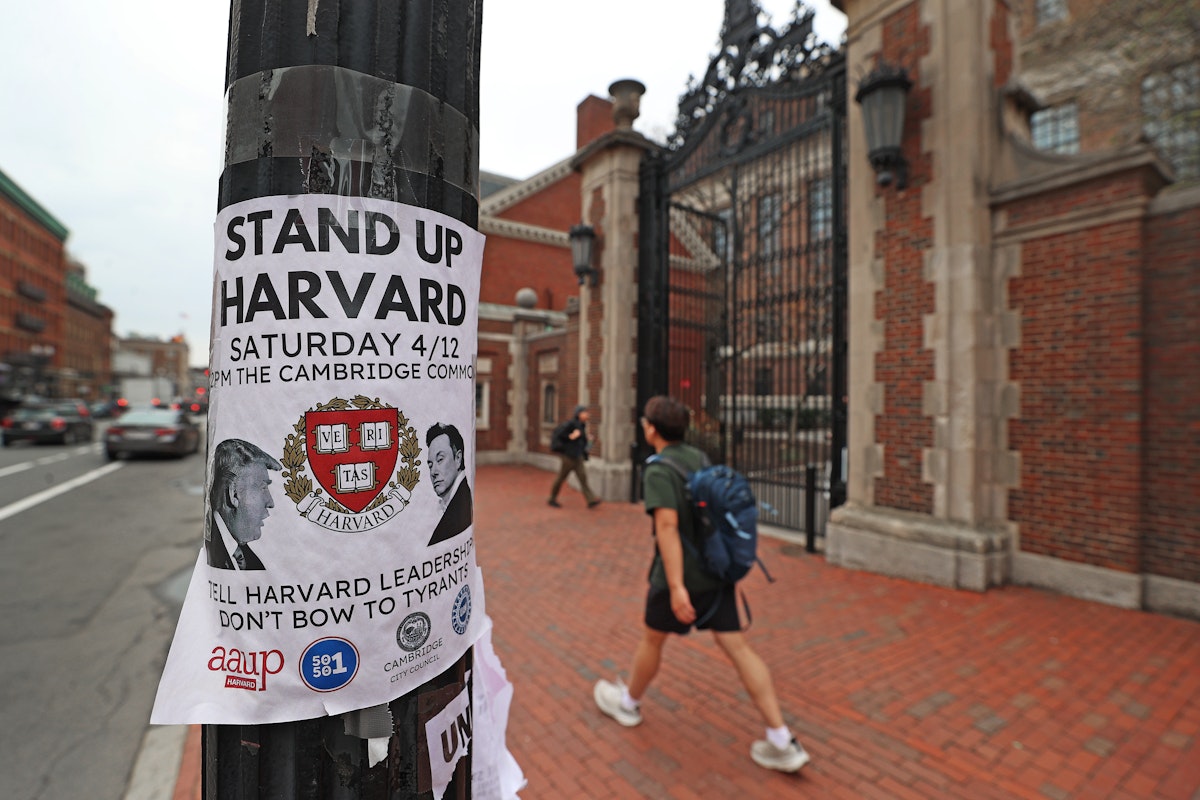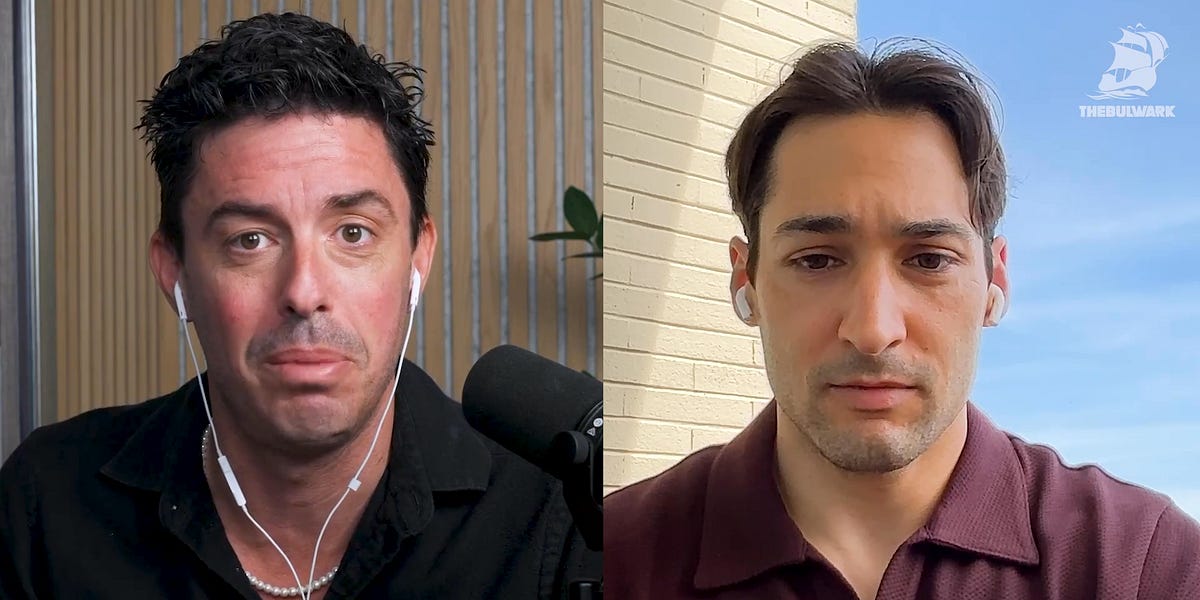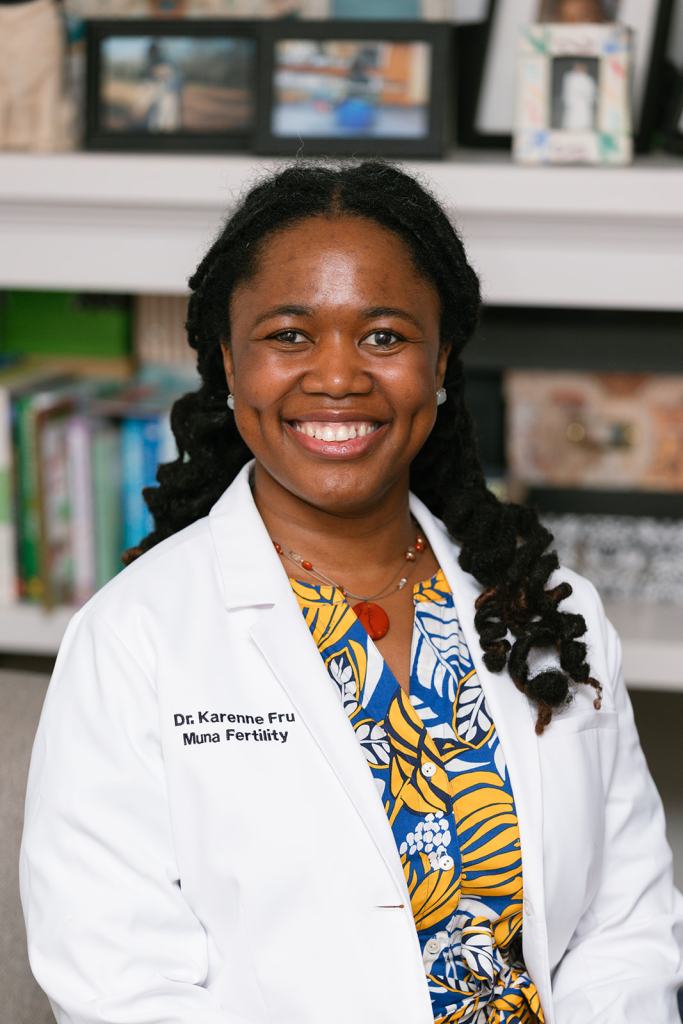
Trump Makes Fresh Threat Against Harvard as He Tries to Make It Cave
April 21, 2025
Pope Francis Was Everything MAGA Isn’t
April 21, 2025Kneeling on the cold bathroom floor of her apartment, Kisha clutched the pregnancy test she had just picked up from the Walgreens down the street. She waited for a single blue line to appear. Instead, there were two.
“When I looked down at that test, I didn’t believe it,” she said. “I told myself there was just no way. This can’t be happening to me.”
She was pregnant at 41 years old.
With no partner to support her and no financial cushion to fall back on, living paycheck to paycheck, she couldn’t afford to raise a child alone and had no desire to.
Working long shifts for an online retailing company, loading packages for $20 an hour, Kisha was facing a reality that she did not expect — and could not afford.
“I knew exactly what my next steps would be,” she said.
That step would be an abortion.
As the Trump administration moved to pause Planned Parenthood’s funding and a federal court ruled against criminalizing doctors in Alabama for helping patients seek abortions across state lines, Black women in the South are sounding the alarm, organizing to defend what’s left of their reproductive freedom.
But living in South Carolina, where a law bans abortions around six weeks of pregnancy, Kisha said she felt like her next steps were under threat. Earlier this month, the U.S. Supreme Court heard oral arguments about whether her state could cut Medicaid funding to Planned Parenthood. That decision will not come until this summer.
The fear has only intensified since the Supreme Court’s decision in Dobbs v. Jackson Women’s Health Organization, which overturned Roe v. Wade, the 1973 decision that established federal protections for abortion. By giving states the right to restrict or ban abortions altogether, the ruling created a new legal landscape that abortion rights advocates say creates a particular set of hurdles for Black women who already face significant barriers to care.
Medical researchers say that the distinctive threats faced by Black women in the South include the potential for medical discrimination by health care providers, criminalization of pregnant women, and the highest rate of maternal mortality in the nation, which has only increased since the Dobbs decision.
Taken together, researchers say, those issues and others create disproportionately high risks for Black women seeking abortions when compared to their counterparts from other demographic groups.
“People need to understand that the current policies are going to, in a very material way, lead to more Black and brown women in jails, [and] more Black and brown women dying because doctors cannot provide them with the care that they swore an oath to provide,” said Dr. Karenne Fru, an Atlanta-based reproductive endocrinologist and OB-GYN. “I remind people that the biggest risk for a Black woman is getting pregnant.”
In Kisha’s case, she made an appointment at a Planned Parenthood clinic where she was able to obtain the abortion pill at a reduced cost, and found some much-needed emotional support during a time she calls one of the most gut-wrenching moments of her life.
“I didn’t feel judged,” she said. “They just saw a woman who needed help, and they gave it.”
Kisha agreed to speak with Capital B only on the condition that her last name not be used, out of fear that sharing her story publicly could lead to criminal prosecution under her state’s abortion laws — laws that place the kind of health care she received under threat.
Abortions, health care and Planned Parenthood under scrutiny
During the first two months of the second Trump administration, the battle over reproductive rights has continued. On April 1, the Trump administration revoked Title X funding for Planned Parenthood, cutting tens of millions from clinics that provide reproductive and preventive health care.
The very next day, the U.S. Supreme Court agreed to review South Carolina’s attempt to exclude Planned Parenthood from its Medicaid program, a decision that could significantly impact health care access for many low-income residents.
“President Trump and Elon Musk are pushing their dangerous political agenda, stripping healthcare access from people nationwide, and not giving a second thought to the devastation they will cause,” Alexis McGill Johnson, president of Planned Parenthood, said in a statement.
Several Planned Parenthood clinics across Michigan announced their doors would be closing following the latest federal funding cuts. In addition, the cuts drew outrage from Planned Parenthood centers across the South — especially in states like Tennessee, Georgia, Alabama, and Mississippi, where strict abortion laws already make it harder for people to get care. These states also provide some of the weakest maternal health support in the nation.
“We know the chaos and terror from this administration will impact marginalized communities and people of color the most,” said Ashley Coffield, CEO of Planned Parenthood of Tennessee and North Mississippi. “This especially puts Black women at risk.”
Abby Ledoux, a spokeswoman for Planned Parenthood Gulf Coast, said one of her organization’s clinics — serving Louisiana and southeast Texas — was also directly impacted.
“It’s just one in a long line of attacks. We’re doing everything we can to fill the gaps in a broken health care system,” she said.

Fru, a reproductive endocrinologist and OB-GYN, testified in March against Georgia’s House Bill 441 — a law that would ban nearly all abortions by defining life as beginning at fertilization. Her testimony went viral.
Fru’s practice is rooted in helping women conceive. But she also supports patients through miscarriages, failed pregnancies, and medically necessary abortions — highlighting how interconnected reproductive care is.
In states like Georgia, with six-week abortion bans, detecting fetal cardiac activity prevents termination, no matter the circumstances.
Fru said as many as a quarter of all pregnancies “will not make it outside of the first trimester, and at that point, you have to do a lot to prove that it was not willfully terminated.”
She explained that many of her patients have “highly desired pregnancies” — individuals who have paid for fertility treatments to conceive. But when those pregnancies become nonviable, the treatment options often involve the same medication used in abortions.
“I have to put a note at the bottom of their prescription for the pharmacist to see that says this patient has a nonviable, desired pregnancy and is in distress, please dispense the meds as written without questioning her. And the reason I do that is because I have had patients calling me crying. After all, here they’re having the worst day of their life, and now a pharmacist is asking them if they’re using the pills to perform an abortion.”
Fighting for abortion rights in the South
Fru warns that the growing criminalization of reproductive care affects not just patients, but also the providers trying to help them.
That’s why, for many advocates, a recent federal court ruling in Alabama offered a rare moment of relief. On the same day that the Trump administration cut Title X funds, a U.S. district judge blocked a 2023 Alabama law that criminalized helping women travel across state lines to obtain legal abortions — ruling that the state could not prosecute individuals or providers for doing so.
The lawsuit was brought by a coalition, including the Yellowhammer Fund, which offers financial and logistical support to abortion seekers in the South.
The fund’s executive director, Jenice Fountain, said the group was ready to resume support the moment the ruling came down.

“We funded an abortion just 15 minutes after the ruling. That’s how urgent and how serious this is for the women who need our help. We can celebrate this victory for a day or two, but we have to get back to work,” Fountain said. “I’d say we are done celebrating. It’s not acceptable that the best we can do for anyone is advise or fund their care out of state. People shouldn’t have to go out of state to get health care. Abortion should be free and accessible in this state, and we aren’t there yet.”
While the judge’s ruling reaffirmed that Alabamians still have the constitutional right to travel and seek legal medical care, even if their home state criminalizes it, for Fountain, the ruling is far from enough.
“Just having Black women watch an entire system fail them is mentally and emotionally horrendous on our bodies. There’s the actual talk of us dying from a lack of health care, and it’s horrendous. And knowing that the collateral for all of this is going to be someone that looks like you. If you’re not trying to kill Black women, what are you trying to do?” Fountain said.
Advocates in other Southern states echoed her concerns. Jules, a health care executive in Tennessee who would only speak on the condition that her last name be withheld, said 60% of the people they support live in West Tennessee, where that state’s Black population is concentrated — and where many residents are low-income or uninsured.
“The Alabama ruling gives us some legal precedent to fight with,” she said. “But legislators are getting more creative with how they attack our services. We’re not in the clear.”
Alexis Alsup, a doula in Knoxville, says Black women in the rural South are often hit the hardest because there aren’t enough resources nearby. She says many also don’t know where to go for help.
For Kisha, the administration’s cuts and restrictions on abortion laws feels deeply personal.
“This is an attack on women. If it was really about the kids, they’d be reforming foster care or adoption systems. They wouldn’t be making women responsible for systemic problems or policing our bodies,” she said. “And where are the laws that hold men accountable? We don’t get pregnant alone.”
As for her decision — the one she made with a heavy heart — Kisha says it wasn’t easy. And she knows it could’ve been her last chance to have a child.
“I felt super selfish. I couldn’t even tell my mom because I know she wants grandchildren. But I also know that I would’ve felt just as selfish raising a child in these circumstances. I had to forgive myself.”

Longtime advocate Deon Haywood, executive director of Women With a Vision, says Kisha’s story is one of many, woven into a legacy of resistance by Black women across generations.
“Yes, we will suffer under these cuts, and we will also find ways to care for one another,” Haywood said. “Black people are a passionate people, and we are filled with spirit and soul, and that’s what we bring to the streets when we’re fighting back. That’s what we bring to the halls. That’s what we bring to courthouses.
“We take it with us because it’s a part of our DNA left and shared by our ancestors. Because of that, we owe it to ourselves to stay in this fight.”
Great Job Angela Dennis & the Team @ Capital B News Source link for sharing this story.





